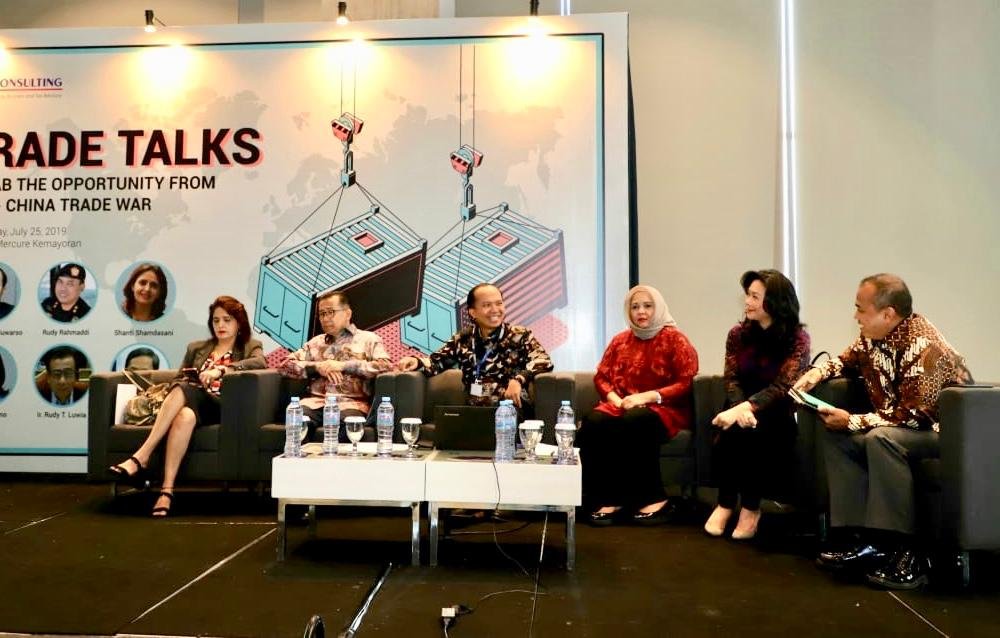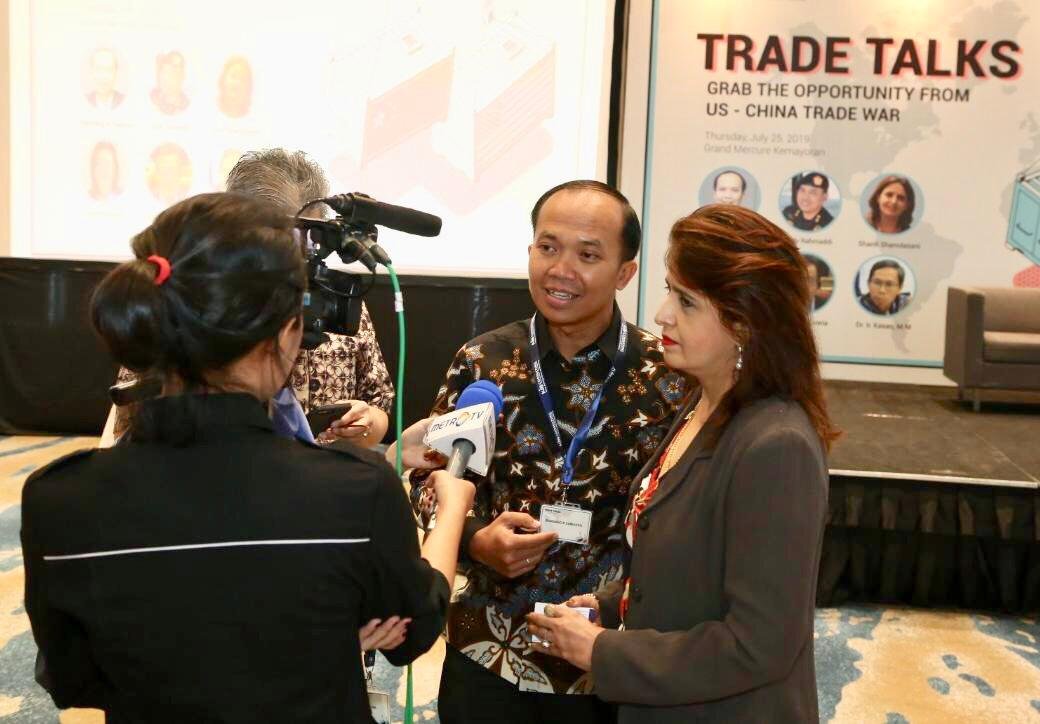TRADE TALK 2019 Grab the Opportunity from US-China Trade War
The event was held in 26 July 2019
Context:
The infamous trade war between the US and China has boosted Vietnam’s FDI by 16-fold in just 9 months, making them the official “winner” of this situation. In contrast, the gap between Indonesia’s import and export just keeps getting wider. Indonesia’s declining exports have been going on since way before the US-China Trade War happened. Instead of blaming our trade deficit on this “war,” we should be seeing this as a wake-up call. At the moment, the country’s main focus is to increase export and foreign investments. However, more importantly, Indonesia needs to be agile and ready to break into foreign markets besides the US and China. In terms of product quality, we are better than Vietnam. The only things we are lacking are exposure and capacity, which is why local businesses and the government need to work hand in hand to make Indonesia better.
Problems identified:
1) Although Indonesia has a lot of great initiatives, our economic foundation is never strong. Indonesia’s weak competitiveness is dragging down the country’s prospects.
2) The Indonesian government and businesses don’t collaborate and integrate with each other..
3) Local businesses need to have foreign production facilities moved to Indonesia to save money on imports.
4) Cost of imports into Indonesia is too high due to protectionism. Therefore, local businesses need to have foreign production facilities moved to Indonesia to save money on imports. Otherwise, people will keep resorting to shop locally manufactured or made-in-China products.
5) There’s a decline in Indonesia’s export because commodity demand keeps dropping.
6) The manufacturing sector in Indonesia faces a lot of problems. This becomes somewhat a deal breaker to FDI, since machinery/manufacturing has become the focus of many developed countries nowadays.
7) Indonesia’s huge population is more of a “burden” rather than an asset, because the quality of the country’s workforce is very low.
Proposed solutions:
1) There needs to be a synergy between the government and business owners. Businesspeople need to embrace a healthy relationship with government agencies.
Some Law such as Labour Law, Investment Law, Custom Law, need to be revised. Coordination between ministry and government institution need project manager to handle it and continuous input from all stakeholder is needed.
Through this partnership, we ultimately hope to achieve better import export and pro industry policies. This easier, simpler procedure could attract more foreign direct investments (FDI) in Indonesia, hence, more job opportunities for Indonesians. In addition, we may revise Investment law which encourage local entrepreneur to become global player for outbound investment
2) Businesses have to start investing in people who can liaise with the government, whose job it to build and maintain a healthy relationship with them. This should not be the obligation of business owners only and should not happen only when they are in need of favors from the government.
3) We need to identify potential growth areas in Indonesia and make quick-win initiatives for the short-run. Find the reformists, sit together with them, build a roadmap, and establish a vision/goal to achieve together in the long-run. Proposed public institution reform should become part of Indonesia Long term Road Map which can be applicable for both government and private sector
4) Indonesia needs to shift from raw commodities (e.g. mining, agrobusiness, etc.) to the manufacturing sector to compete in foreign markets. Local businesses must act quick and make use of this time to push exports before the US removes Indonesia from Generalized System of Preferences (GSP).
5) Right now, Indonesia can find huge opportunities in labor intensive sectors because we have a huge working age population.
6) Eventually, Indonesia would want to adopt a “disruptive” strategy: Automation. We should invest in more machines, as the rest of the world is progressing towards less manual (human) labor jobs.
7) Indonesia should be more involved in international projects to increase exposure. For example, Indonesia should try to get a more significant role in China’s Belt and Road initiative (BRI).
8) We need to improve the quality of our workforce, as the output we produce for our investors is not as good as the one they can get from other countries. One thing Indonesia can learn from Vietnam is their consistency and focus on giving high quality products.




